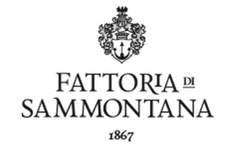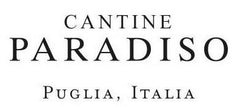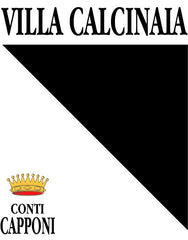29 products
- Red Wine
- Sangiovese, Trebbiano
- Biodynamic, Natural, Organic, Vegan-Friendly
- Dry
- Light Bodied
- 750ml
- 13% alc./vol
About the Winery
Fattoria di Sammontana

The vineyards of Fattoria di Sammontana are located along the hills that border the Arno River, 20km to the south west of Florence. Today, the family - now in its fourth generation - runs the farm according to organic and biodynamic practices, with the intent to fully preserve and sustain the traditions and winemaking history of the land. The property and its 12th century Romanesque church, were once the property of the Medici family.
- Red Wine
- Sangiovese
- Sustainable
- Dry
- Medium Bodied
- 750ml
- 14% alc./vol
About the Winery
Cortonesi

“I’m a lucky man who has been given the opportunity to realize my dream and continue my family’s efforts making wine in the land where I was born.” – Tommaso Cortonesi
Tommaso is third-generation winemaker at Cortonesi that owns some of the most prized vineyards in the north and south-east of Montalcino. Favourable geography, rocky soils, and ingenious winemaking all come together to create some of the region's deepest and most elegant Brunello wines.
The Cortonesi family has been making wine since the 1970s. At first, wines were made to be enjoyed by family, friends and neighbours, but then in 1985, Cortonesi had gained enough traction within their community that they began to offer their wines commercially. Today, Cortonesi remains a family business that continues to work according to tradition, while employing modern technologies to the enhance the quality of their production.
Lovers of Sangiovese must experience “La Mannella”, a collection of wines exclusively sourced from Cortonesi's private vine land. This farm covers 56 hectares, eight of which are devoted to the production of some of the world's most coveted and age-worthy Brunello di Montalcino.
Press Reviews
Wine Align
92 points - Michael Godel
The 2011 planted vineyard is the youngest at La Mannella and is used exclusively for Tommaso Cortonesi's Rosso. "In recent years, for my generation we are trying to approach Rosso di Montalcino is a more personal way," tells Cortonesi. "A fresh wind, brought to the production and (especially) the communication. Finding a real identity, not as a baby Brunello." The clay soil does not necessarily give big concentration but more so ease, elegance and classic sangiovese. Seemingly dark in hue but bright and tart in such an accentuated way. Can't really shake the idea of the quality inherent in this specific scope of concentration. A liqueur of sangiovese, moving towards the finish swiftly and courteously across the palate. Drink 2022-2026. Tasted November 2021.
- Red Wine
- Alicante Bouschet, Aragonez, Cabernet Franc, Cabernet Sauvignon, Merlot, Primitivo, Sangiovese, Trincadeira
- Sustainable
- Dry
- 750ml
About the Winery
Cantine Paradiso

Cantine Paradiso is located is the South of Italy, in the region of Puglia. During the estate's 60-year history, the Paradiso family have always given the utmost importance to their close ties to Puglia's unique terroir, promoting the area's winemaking culture and constantly improving the quality of their production. The ongoing results confirm the choices made by three generations of down-to-earth vignerons closely bound to tradition and sensitive to innovation.
- Red Wine
- Sangiovese
- Organic, Vegan-Friendly
- Dry
- Residual Sugar: 2.00 g/l
- Medium Bodied
- 750ml
- 14.00% alc./vol
About the Winery
Villa Calcinaia

Villa Calcinaia is situated in the centre of Chianti Classico near the town of Greve-in-Chianti. This historic estate has been home to the Counts Capponi since 1524, and is maintained by Sebastiano Capponi and his brother Niccolo. In 1992, Count Sebastiano Capponi became the first in the history of the family to manage the winery personally, giving a new life to the vineyards and the cellar.
The family owns 200 hectares of land planted with olive trees, vines and pine trees. Organic farming is the standard at Villa Calcinaia where 75 acres of vineyard are planted with Sangiovese, Merlot, Canaiolo, Grechetto, Vernaccia, Trebbiano, and Malvasia. Through every vintage, the wines are crafted with food in mind. They are balanced, elegant, perfumed, and savoury yet refreshing with restrained vigour and intensity that ensures longevity.
Press Reviews
Tony Wood Italian Wine
93-95 Points
Medium ruby red in colour. Floral aromas of red rose petal, gardenia, ground ginger and blackberry. Rainier cherry, pomegranate, spiced orange peel, salty liquorice and crushed terracotta. Waves of minty freshness. Silky red with a razor sharp edge of acidity. Linear. Balanced. Focused.
- Orange Wine, Red Wine, White Wine
- Chardonnay, Olaszrizling, Pinot Gris, Ribolla Gialla, Riesling, Sangiovese, Sémillon, Trebbiano
- Natural, Organic, Sustainable
- Dry
- 750ml
About the Winery
Château Barouillet

Chateau Barouillet has been a family business going back at least 8 generations. Vincent Alexis works alongside his father and grandfather to cultivate the land and has moved the winery into organic viticulture, starting to convert the soil in 2010 and fully converting all the vineyards by 2014. In 2020, the obtained their biodynamic certification.
The domaine controls 45 hectares of vines throughout Monbazzillac, Bergerac Pécharmant, and Cotes de Bergerac. Vincent continues to push the biological approach further by working according to the lunar calendar in the vineyards and in the cellar.
Gilvesy Pincészet

Hungarian expat Róbert Gilvesy moved back to his homeland from Canada, and began building the Gilvesy winemaking empire on the former Esterházy estate on Szent György Hill. Thanks to years of hard work, the Hegymagas-based facility now includes a modern building complex and about 13 hectares of vineyards, in addition to being the home of the family. The area is shaped by 6 million years old volcanoes, where indigenous and international varieties grow organically.
Robert’s absolute admiration for nature and the terroir translates into an immense respect for the environment. By farming using organic practices, the soils and the vines stay healthy. In the winery, by letting nature take its course without controlling the processes, and using local resources, such as Hungarian oak barrels, Gilvesy promotes and protects the Balaton region.





























